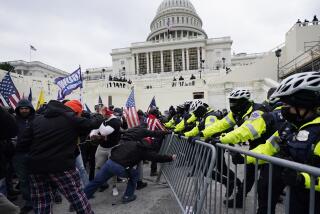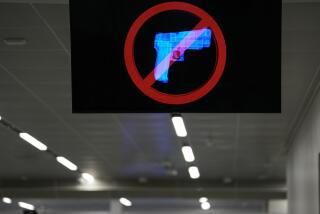High Court Trims Privacy Shield of 4th Amendment
- Share via
WASHINGTON — The Supreme Court narrowed the privacy protection of the 4th Amendment Tuesday, ruling that short-term visitors to a home are not shielded from police surveillance.
The 6-3 decision reinstated the drug convictions of two Minnesota men who were observed by an officer who had peeked through the window blinds of a ground-floor apartment. The men, who were seen putting white powder into bags, did not live in the apartment nor were they overnight guests.
Arrested upon leaving the building, Wayne Carter and Melvin Johns were charged with drug offenses and convicted. But the Minnesota Supreme Court threw out the evidence last year and ruled the visitors were entitled to privacy in the home of an acquaintance.
Disagreeing, the Supreme Court said the 4th Amendment’s prohibition on unreasonable searches and seizures generally “extends only to people in ‘their’ houses,” said Chief Justice William H. Rehnquist. It does not extend to those who “were essentially present for a business transaction and were only in the home for a matter of hours,” he said.
The ruling in Minnesota vs. Carter, 97-1147, follows a long line of decisions that have narrowed the 4th Amendment in drug cases. Over the last 20 years, the justices have given the police greater authority to search for illegal drugs, whether hidden in cars, stored in baggage or carried by traveling passengers.
To some degree, however, the court has drawn a special line around homes. It has referred to the “sanctity of the home” as being off-limits to government intrusion. Justice Ruth Bader Ginsburg, writing in dissent Tuesday, referred to “the unique importance of the home, the most essential bastion of privacy recognized by the law.”
But judges have been divided over whether to draw legal lines based on the place itself, or the persons who are there. The court on Tuesday chose the latter.
Homeowners have a “legitimate expectation of privacy” in their own homes, but the same does not apply to short-term visitors, Rehnqust said.
In 1990, the court said overnight guests were entitled to the same privacy as a homeowner, and the majority made clear it was not backing away from that principle.
More to Read
Sign up for Essential California
The most important California stories and recommendations in your inbox every morning.
You may occasionally receive promotional content from the Los Angeles Times.











